July 8. At about 5:45 am, Natasha called me. My phone was set to vibrate, and I am usually a light enough sleeper that a vibrating phone will wake me. I must have been exhausted, because her call, and a subsequent call from Dabloo, didn’t wake me.
Just before 6 am, I started and woke up. On checking the phone immediately, I found a voice mail from Natasha, telling me that I needed to call her back. I called her and then Dabloo, but neither picked up. I got dressed immediately and got in the car to drive to the hospital.
Dabloo called me as I was reversing out of my garage. Ma had apparently shown signs of decline, and Natasha had tried calling me and then called Dabloo. However, Natasha had been able to get prompt attention from the medical staff on duty. Ma was stable. Dabloo suggested that I stay home, since he was very shortly going to be by her side. I told him I was going to join him.
Ma was asleep, propped up in a semi-seated position, when I reached her room. She didn’t respond when I touched her arm, and I didn’t want to wake her. Although she had an oxygen mask over her throat, she was still attempting to breathe through her mouth, loudly, by what must have been instinct – her mouth and nose were no longer capable of pulling oxygen in through her cancer- stricken throat.
After some time had elapsed, Jocelyn – one of the day caregivers we had hired – arrived as well. I told Dabloo that he needed to go home and rest, since he hadn’t gone home until about 2 am. He left. Natasha was dozing, and Jocelyn was playing with her phone. Ma was just as she had been when I arrived. She was still making the motions of breathing through her mouth. Her oxygen saturation level was between 98-100. Her pulse was at about 95, which was good for her.
I remembered what Bhavya had said to me about Ma hanging on for my sake. I went over to her side, and spoke to her, softly. I told her that it wasn’t fair to her to go through all this pain and discomfort, that I loved her, but she had to stop sticking around for me. I told her that she should feel free to go, that I couldn’t see her like this. She didn’t respond at all. It was 7:30 am.
At 8 am, I answered a call from the radiation therapy office. When they learned that she had had to go back into hospital, they said she couldn’t get her treatment that day, but they would put something together when she could travel to their center. I thanked them and hung up.
Natasha left at 9:30 am. At 10 am, a respiratory nurse walked in to clean up Ma’s trach tube. At that very moment, Bhavya called to tell me she was at the hospital to relieve me and trying to find parking. She said she would be up shortly.
The nurse got Ma’s oxygen mask off, reached into Ma’s tube with a very thin suction tube, and attempted to suction out any obstructions. There was nothing. She began to put Ma’s cannula back into her throat. I noticed Ma’s oxygen saturation level had dropped to the high eighties.
The nurse then began to put Ma’s oxygen mask back on. I was looking at the oxygen and pulse readings. Alongside the oxygen level, Ma’s pulse had also started to drop. When I saw it go into the high seventies, I called Papa and delivered the message: she was going.
The nurse’s demeanor gained urgency. While trying to get Ma to respond to her oxygen supply, she made a call to the emergency response team, and, almost immediately, there were four nurses in the room. Ma’s numbers continued to drop.
I stood there, uncertain, near the woman who had given me life, and who was now taking her leave. She showed no signs of stress or pain. Her mouth was still open, but she wasn’t trying to breathe hard.
The head nurse asked me if I wanted them to resuscitate her. We had already made the decision that if she went naturally, we wouldn’t try to bring her back. Resuscitating a terminally ill patient involves hard pushes and blows to the chest, which results in injuries that then become yet another source of pain for the patient. I replied in the negative. She needed my help to cross over to the other side, and having the emergency staff bring her back to her pain wasn’t going to help.
I had never seen anyone die. I’d never even been near anyone who was in the process of dying. There was no protocol that I knew of. I will always be thankful that the head nurse noticed my uncertainty and suggested that I hold Ma’s hand and speak to her, because, she told me, the sense of hearing is the last sense to shut down. Quickly, I knelt beside Ma’s bed, held her right hand, and started to try to put some words together. The only sound that I could make, however, was “Ma …!”. And then I buried my head in her palm, and started crying, holding her close while her last breath left her.
Jocelyn was screaming, I realized, from the shock of the sight unfolding in front of her. I couldn’t tolerate the idea of Ma’s last few seconds being full of that unpleasant noise, so I told her to stop and turned back to Ma. Her pulse was now in its twenties and still dropping. Suddenly, it dropped to zero, and the blood oxygen level followed suit. The nurses unhooked her from the monitors, and very gently laid her down, her head on her pillow. A solitary crimson bubble rose out of her trach tube, hesitated briefly, and then collapsed. Her last breath had just left her. It was 10:10 am.
The head nurse came over to comfort me. “She went comfortably. Her heart just stopped.”, she said. The enormity of what had just happened was still sinking in for me. I realized I had to call Papa and Dabloo and let them know. This time, Dabloo picked up my call. “She is gone.”, I told him. He said he was on the way over.
Suddenly, Bhavya appeared at the door. She began to tell me that it had taken her a long time to park, but I could now leave for a few hours. I pointed towards Ma, and, to her shock, told her that Ma was gone. She hadn’t noticed Ma was lying flat on her back, motionless. She began to cry.
Ma’s doctor came in to console me. She had always been very matter-of-fact about Ma’s disease, to the point that she seemed unhappy when Ma had improved during the summer. Very unexpectedly, she held me and gave me a hug, telling me to be brave.
Papa arrived first. He cried when he saw Ma, and then collected himself. For some reason, he raised her right arm and then lowered it, commenting that she wasn’t showing signs of rigor mortis. Of course – she had been dead for about 15 minutes.
Dabloo came in, crying. He kissed Ma on her forehead. I told them about her last moments, repeating how calm her end had been.
The head nurse came over to ask if there was anything she could do. I wanted Ma to be cleaned up. She had sweated a lot over the last couple of days. She also had tubes in her throat and stomach. The nurse asked, and I confirmed, that these tubes needed to go. Soon, two other nurses came in, and, very gently, very respectfully, they began to clean Ma. Once she had been washed on her front, they gently raised her side, and washed and cleaned her. I used to help Jocelyn in bathing Ma, and she was always very glad to be able to feel clean. My heart couldn’t help but hope that she was feeling light and clean again.
We left the room for a short while, giving the head nurse some time to extract the tubes and clean up. When we went back in, Ma’s trach tube was gone, plugged with gauze and taped over discreetly. She told me she had also removed the stomach tube, and plugged it in similar fashion.
Up until now, I hadn’t realized that there was so much more to be done. It had been more than a year since we had been told she was going to pass away. She had been through so many up and downs, and the downs had often appeared insurmountable. After her latest setback, we had wanted her to go peacefully. And now that she had indeed gone peacefully, I realized I wasn’t ready. I just wanted to sit with her, hold her, kiss her still warm face.
The nurse wanted to know about funeral arrangements. That task, I realized, was going to fall to me. Papa and Dabloo were looking to me to take care of these things. I told the nurse that Ma was going to be cremated, and then started calling funeral homes in Atlanta that offered cremation services. Eventually, after a few calls, I managed to find one which agreed to help us cremate her according to Hindu rites the same day.
In the meantime, our relatives and friends started arriving. Bhavya had gone back home to get Ma’s clothes and jewelry. According to custom, Ma had to be dressed well when she was cremated. People came in and out, offering their condolences. I was thankful.
I found myself alone in the room, sitting next to Ma. She looked absolutely at peace. I massaged her arm, kissed her forehead, whispered to her that I loved her, and just held her hand. She was still warm to the touch. A tear had collected near her right eye. I wiped it away, gently.
The funeral home had told us that they could accommodate us at 3 pm, and it was almost 1 pm. Bhavya came back with Ma’s clothes. With her friends, she changed Ma into nicer clothes than she had had a chance to wear for almost a year. When I went back into the room and looked at Ma, she looked like a normal person sleeping.
At about 1:30 pm, a representative from the funeral home came to us, and prepared Ma for her last car ride. Regulations forbade us from traveling with her, so she was going to be alone in the hearse, and we would follow. Although I knew she couldn’t feel anything anymore, I was very uneasy with the idea. She had never liked traveling alone, especially in her last few months. Telling myself I was being silly, I drove Papa and myself to the funeral home, about 30 minutes away.
There, they took Ma in to prepare her for her cremation. We signed some papers, paid for the services we were going to use, and asked that her ashes be placed in an urn. We were going to take her ashes to India, to scatter them in a place where Hindu mythology said she would be at rest.
Our Hindu priest joined us. He had been called by Bhavya. As we waited for the funeral home personnel to tell us that we could see Ma, I began to get impatient. I felt cheated of my time with her. She was somewhere in the building, and soon she was going to be nowhere, but I was not able to be with her.
They called us in. The cremation area was an annex to the main building. Ma was lying there, in a casket. They had closed her mouth, which had been open when she died. She also had a little color on her face, presumably because the undertaker had applied some subtle makeup. She looked very small, very pretty.
We started the religious last rites. The priest created a flame on a small wood platform that we placed on Ma’s stomach area, and I went through the rituals and incantations that he guided me through. After some time, the flame grew very large, because each incantation was followed by an offering of ghee, purified butter, to the flame. Although the priest assured me that nothing untoward was going to happen, I told him to pause, and got the funeral home staff to provide a large piece of damp cloth, which I put on top of the fire to get it to go down in size. I was determined to not burn Ma’s clothes or face while she was still out of the cremation chamber.
We started again. Dabloo, Papa, and several members of our family were around me. I noticed that several friends had also turned up. There was a sizeable crowd of people on hand, watching Ma’s last rites.
And then it was time. Ma was ready to be placed in the cremation chamber. We guided her casket towards the cavernous mouth of the chamber, and pushed the casket onto the floor of the chamber. I, as her older son, had the honor and duty to light her funeral pyre, as well as to give her mukhagni, which means a flame to her face.
With a thin wood stick, I placed a cube of burning camphor on her chin. It was a heartrending sight for all of us, now that the final disintegration of her shell had begun. Then we pushed her casket into the cremation chamber, the staff closed the large metal door, and showed me the switch that would start the very hot flame in the chamber. My brother, Dabloo, and I took a deep breath, and turned that switch on. It was just after 3 pm.
The emotional impact of literally burning your mother to ashes cannot be overstated. She was in there, her ravaged, weakened body being pulled into nothingness by insistent flames burning at over a thousand degrees. Out here, I was consoling myself that she was not suffering any longer, but the tears just kept coming.
The staff told us that it was going to be several hours before the cremation chamber was going to opened, and her ashes retrieved. I thanked them, and all of us walked out to our cars. My friend, Manish Kumar, came up, crying, asking me why I hadn’t told him Ma had passed away. He had found out from someone else – I had had no time to call anyone – and hurried to the funeral home. Ma had been part of his childhood, since we had been best friends since 1980. We had lost some of that closeness during the last few years, but when news of Ma’s illness had become known to him, he had called me, crying, shaken to his core.
When I got back home, it felt like I had been away for days, and not just since 6 am that morning. So much had happened. I went into the room she used to occupy, to touch her clothes, her books, her notes. Her presence was still very palpable.
A steady procession of friends and family visited over the next few days. Ma’s Facebook page filled up with heartfelt messages of grief. She had touched the hearts of many people during her life.
After a few days, we performed religious rituals, asking our forefathers to help her soul pass from this world to the next. It was time to take her, or what remained of her in her ashes, back home to India.
All of us flew to India. On July 25, we went to Varanasi, where the river Ganges flows, and got on a large boat to travel to the middle of the very wide river. A priest led me, her eldest son, through the chanting of mantras which were to be our final goodbye to Ma. Finally, it was time to put her to rest in a river which is holy to us Hindus.
I couldn’t help but shed tears as I opened the urn containing her ashes and offered them to the waves. As the last few wisps of the powdery residue disappeared into the water, I realized that that was the last contact I’d have with Ma’s physical self in this lifetime.
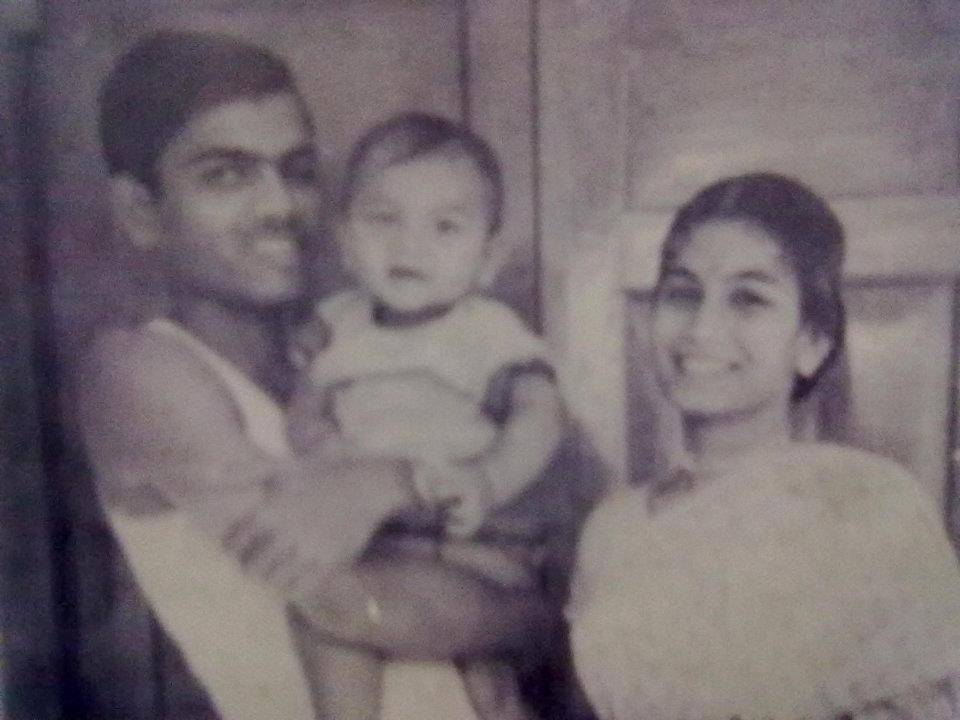
Every story we read when we were children was supposed to end with a meaningful conclusion. So what was the conclusion here? What did I learn?
I learned that life is fleeting. We all know that, but we tend to push that thought away. In just over one year, Ma had gone from being as permanent as everything to just not being there. Any way you look at it, the lesson is as brutal as it is true.
I learned that mothers are always the best cooks. Ma had cooked less and less over the years, although she cooked a little after her first round of chemotherapy was successful. But, to this day, I can remember the exceptionally tasty pulao, chicken curry, and besan ka laddoo she used to make. I wish I could get that food, cooked the way she cooked it, with so much love for us.
I learned that our family is very strong. For one year, we tried really hard to bring Ma back to good health, and sometimes to life. It took a toll on all of us, and I must admit I lost my temper with other members of my family more than once. But every day, we got back together and worked as a team to help Ma, to keep her comfortable, to keep her breathing. It is a rare thing to have a close-knit family such as ours, and rarer still is our will to fight.
But what I learned most definitively was this: Ma was the most courageous person I have ever known. Physically diminutive, she ended up being larger than life by the time she left us. She didn’t cry once, whatever the level of pain. When she was in her senses, she didn’t fall apart, despite so many indications that her end was near. She kept us going by showing she didn’t just need our help, but that she was at her happiest when we were around her. So many problems befell her as the disease moved in to kill her, but her spirit proved indomitable. She didn’t lose to the disease – her body just couldn’t keep going. To the end, her sense of humor, her will to live, her concern for the rest of us, and especially for her grandchildren, were all very evident.
She was always reluctant to be alone at night during her hospital stays. In her dictionary, being alone meant having no family around her. It didn’t matter that we had caregivers with her at all times. She never said it, and I never brought it up, but we both knew she was afraid she would pass away without her family near her.
That is why, till my last day on this planet, I will give thanks to fate that I was able to hold her hand as she left. I don’t know if she knew I was there; I hope she did, although it is improbable.
I do hope some of what they say about an afterlife is true, because when I am very depressed, I think about being able to see her again.
I love you, Ma. I hope you are comfortable, wherever you are. I hope you are able to watch those terrible Hindi TV serials you used to watch with such rapt attention.
Thank you for giving me life. Thank you for giving me so much love.
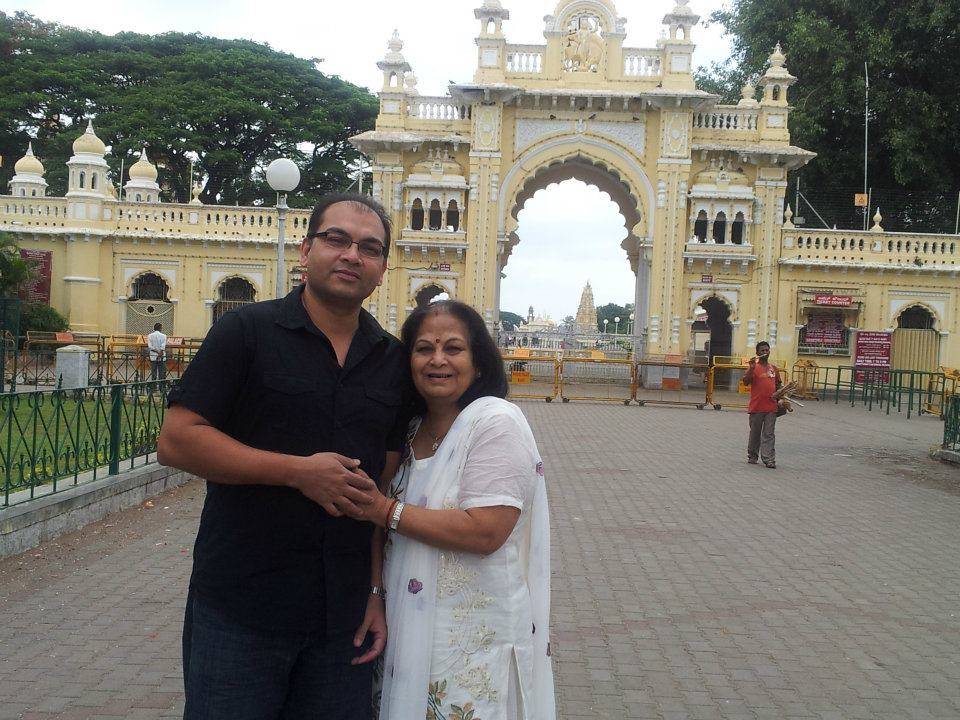
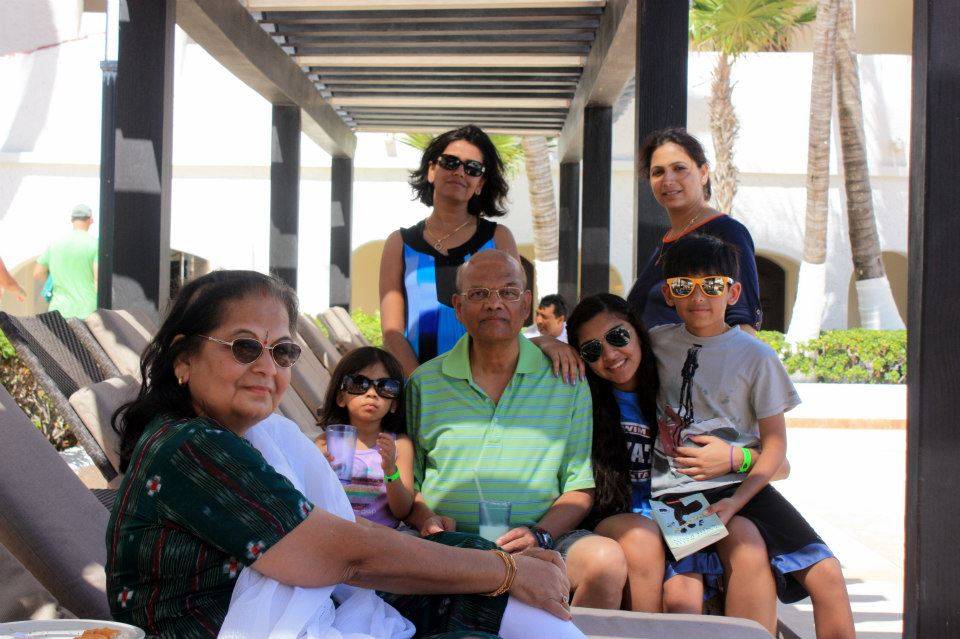
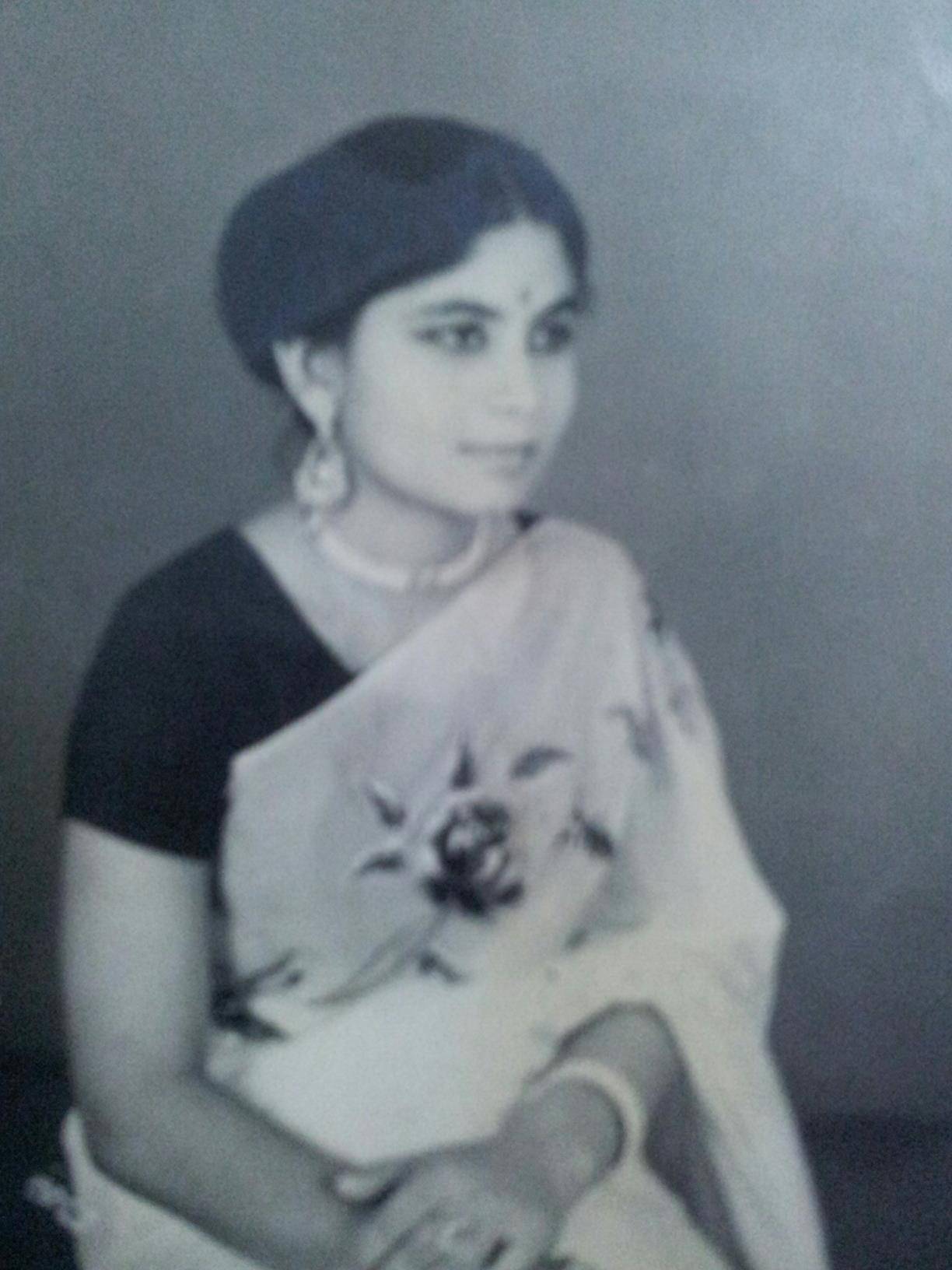
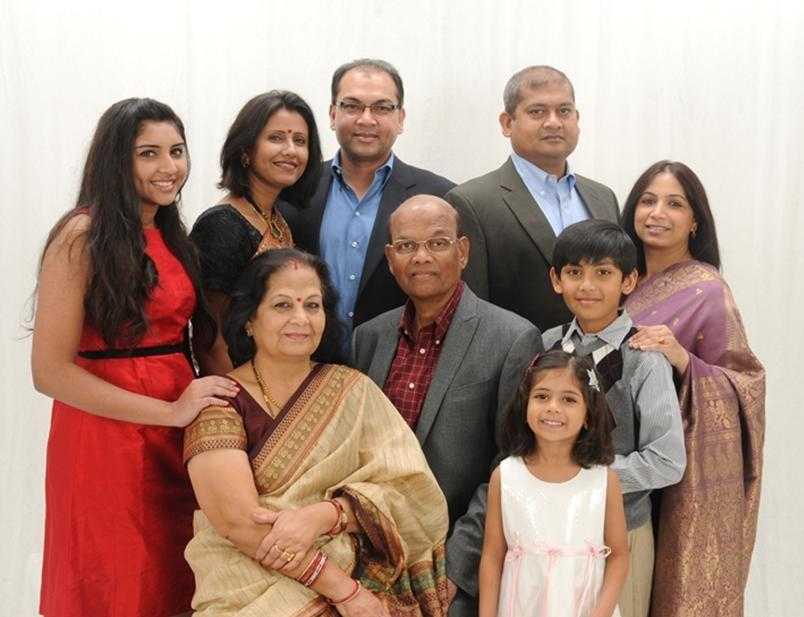
4 responses to “Chapter 8 – And Just Like That, She Was Gone”
Read every word of it- can feel the warmth and love !!
I can relate to what you have gone through !!
Thank you.
With every word you’ve opened up your heart……. Let in all who loved and respected her into your world. Pray she’s happy and at peace and sending her blessings your way.
Very well written. I got reminded of my eldest sis whom we lost very suddenly in an accident. Indeed, life is fleeting.
She is lucky to have a son like you.
Tears welled up and flowed as i read.
Sunita
Bhavya was my classmate in school.